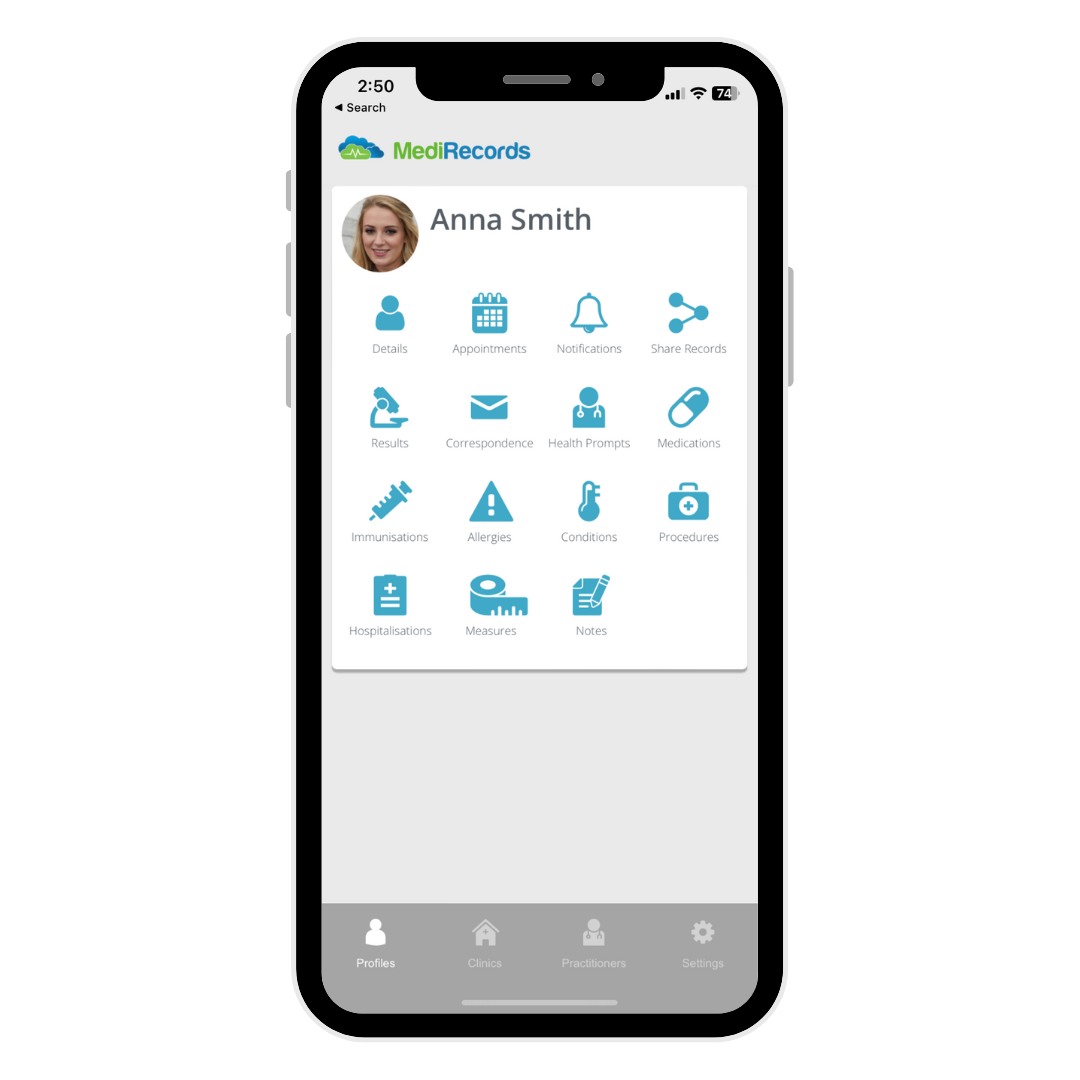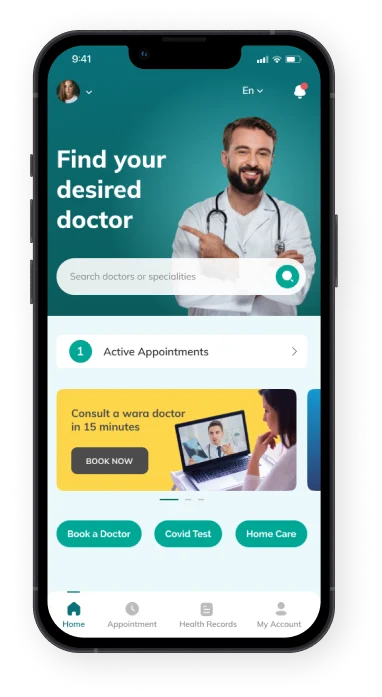The Advantages of Implementing a Mobile App for Clinics in Today's Healthcare
The Future of Health Care: Why Clinics Need a Mobile Application Today
As the healthcare landscape continues to develop, clinics face placing pressure to adapt to person expectations for better convenience and availability. The combination of mobile applications can offer as a crucial strategy for enhancing patient involvement and streamlining procedures.
Changing Person Assumptions
As the landscape of healthcare progresses, patient expectations are undertaking a significant makeover. Today's people are significantly looking for comfort, access, and personalized care. With the surge of modern technology, particularly mobile applications, individuals currently expect a seamless assimilation of health care solutions right into their day-to-day lives. They want the ability to handle consultations, accessibility medical documents, and communicate with healthcare providers through their smartphones, showing a shift in the direction of a much more aggressive technique to health monitoring.
Furthermore, clients are ending up being much more notified and empowered, usually looking into conditions and therapies on the internet before consultations. This increased awareness is paired with a demand for openness in healthcare procedures, including expense quotes and treatment alternatives. Consequently, providers are obliged to adjust by embracing electronic devices that boost the client experience.
The expectation for prompt and reliable communication has never been greater, with several patients thinking about responsiveness an important component of top quality care. mobile app for clinics. In this evolving landscape, healthcare organizations must identify these transforming expectations and take advantage of mobile applications to promote an extra patient-centric method, making sure that they not just fulfill but go beyond the standards set by today's educated consumers
Enhancing Person Involvement

Mobile applications promote interaction between individuals and health care providers, making it possible for real-time consultation scheduling, pointers for medication adherence, and straight messaging functions. These functionalities not only enhance comfort yet also build a sense of accountability among clients. In addition, mobile apps can provide instructional web content customized to individual demands, aiding patients better recognize their problems and therapy alternatives.
The combination of gamification aspects within medical care applications can likewise inspire individuals to engage in healthy actions, reinforcing favorable way of life adjustments. Eventually, enhancing person interaction with mobile applications leads to boosted health and wellness end results, higher individual contentment, and a more joint healthcare experience.
Improving Facility Operations
Enhancing clinic procedures is crucial for improving workflow efficiency and maximizing individual treatment. The application of mobile applications can considerably decrease administrative concerns, allowing doctor to focus a lot more on person interactions. By automating consultation scheduling, person check-ins, and billing procedures, clinics can lessen wait times and improve overall operational effectiveness.
Mobile applications also facilitate real-time accessibility to person records, making it possible for healthcare specialists to make enlightened choices promptly. This immediacy not just enhances the high quality of care yet likewise decreases the likelihood of mistakes connected with lost or outdated info. Leveraging mobile technology supports a more well organized strategy to taking care of client follow-ups and therapy strategies, making sure that no vital actions are neglected.
This enables for prompt replenishment and helps stay clear of interruptions in person care due to equip scarcities. By incorporating these functionalities right into their day-to-day procedures, facilities can create an extra reliable and natural setting, ultimately leading to enhanced individual results and complete satisfaction.
Improving Interaction Networks
Reliable communication is regularly cited as a foundation of top quality health care shipment. In today's busy medical environment, mobile applications can dramatically boost interaction channels between clinics, clients, and healthcare companies. By integrating mobile apps right into their operations, centers can facilitate real-time interactions, making certain that clients receive prompt details regarding their appointments, test outcomes, and therapy strategies.
Mobile apps also empower people to interact straight with their healthcare teams via safe and secure messaging functions. This direct line of news communication promotes a feeling of involvement and permits instant clarification of problems, which can result in better adherence to treatment procedures. Press notifications can advise individuals of upcoming visits or drug timetables, minimizing no-show prices and enhancing total health outcomes.

Remaining Competitive in Medical Care
In a quickly evolving medical care landscape, organizations should prioritize advancement and flexibility to preserve an one-upmanship. The assimilation of mobile applications right into health care services is no much longer optional; it is essential for clinics aiming to improve person interaction, enhance procedures, and improve total solution delivery.
As clients increasingly count on electronic systems for health monitoring, clinics that stop working to take on mobile technology threat falling back. A well-designed mobile application can supply attributes such as consultation scheduling, telemedicine examinations, and accessibility to clinical documents, offering clients with comfort and cultivating loyalty.

Rivals are also spending in mobile services, so remaining ahead requires constant improvement and remaining notified regarding technological advancements. Clinics need to not only execute mobile applications yet additionally engage in regular updates and improvements. Ultimately, the successful assimilation of mobile modern technology will distinguish forward-thinking healthcare organizations and set the standard for patient-centric care in an electronic world.
Final Thought
Finally, the combination of mobile applications in facilities is imperative to attend to the evolving landscape of person expectations. By enhancing client involvement, simplifying operations, and enhancing interaction networks, centers can significantly boost health results. In addition, the adoption of mobile technology placements facilities to stay affordable in a progressively navigate here electronic medical care atmosphere. Eventually, the critical implementation of mobile apps stands for an important action towards delivering easily accessible and tailored medical care, thus meeting the demands these days's encouraged individuals.
Ultimately, improving person interaction with mobile applications leads to boosted health outcomes, greater patient complete satisfaction, and an extra collaborative medical care experience.Mobile applications additionally help with real-time access to individual documents, making it possible for healthcare experts to make informed choices swiftly. In today's busy medical atmosphere, mobile applications can substantially enhance communication channels between centers, people, and health care providers.Mobile apps also equip patients to connect directly with their medical care Click This Link groups via protected messaging attributes. Ultimately, the critical application of mobile apps stands for a vital step toward delivering individualized and available health care, consequently fulfilling the demands of today's empowered people.